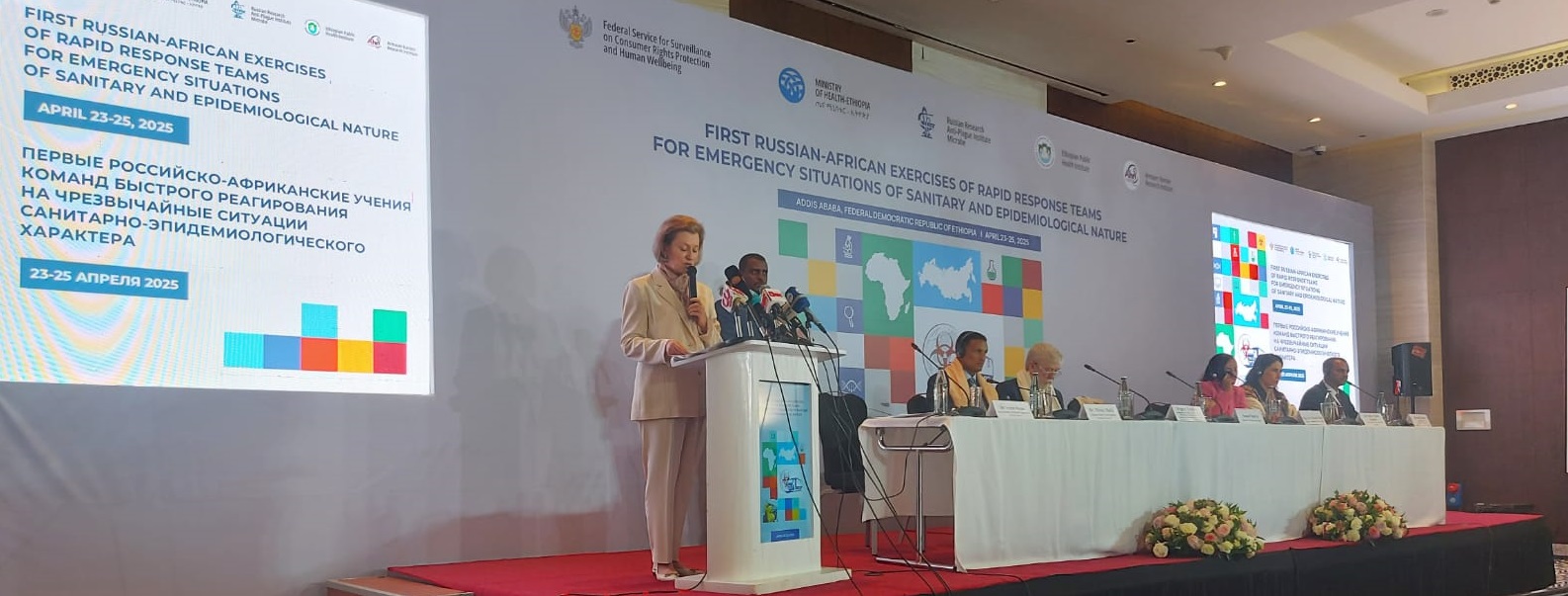
On April 17-22, Dr. Vladimir Dedkov, Deputy Director for Research, as member of a representative delegation, paid a working visit to the Brazzaville National Public Health Laboratory (LNSP, Brazzaville, Republic of the Congo) and from on April 23- 25, 2025, took part in the 1st Russian-African training courses of Rapid Response Teams for Sanitary and Epidemiological Emergencies (Addis Ababa, Ethiopia).
During the visit to the Brazzaville National Public Health Laboratory, he performed a number of consultations with the laboratory experts, discussed the preliminary results of joint works, which made it possible to identify promising areas for further joint research.
The opening ceremony of the 1st Russian-African training courses of Rapid Response Teams for Sanitary and Epidemiological Emergencies visited Dr. Anna Popova, Head, Federal Service for Surveillance on Consumer Rights Protection and Human Wellbeing, Dr. Mesaye Hailu, Director General, Ethiopian Public Health Institute (EPHI), Dr. Evgeny Terekhin, Ambassador Extraordinary and Plenipotentiary of the Russian Federation to the Federal Democratic Republic of Ethiopia, Plenipotentiary Representative of the Russian Federation to the African Union Commission, Dr. Selma Malika Haddadi, Vice President, African Union Commission, Dr. Afework Kassu, Director General, Armauer Hansen Research Institute (AHRI), and Dr. Mekdes Daba, Minister of Health of Ethiopia.
A training seminar was held as part of the training courses. At the plenary session "Combating global threats to biological security: the experience of rapid response teams" the representatives of Rospotrebnadzor, Ethiopian Public Health Institute (EPHI), Ministry of Health of Uganda, Institute of Applied Biology of the Republic of Guinea, and Ministry of Health of Burundi delivered reports. Theoretical solutions to training problems aimed at ensuring prompt response to possible threats in the event of sanitary and epidemiological situations were also provided.


